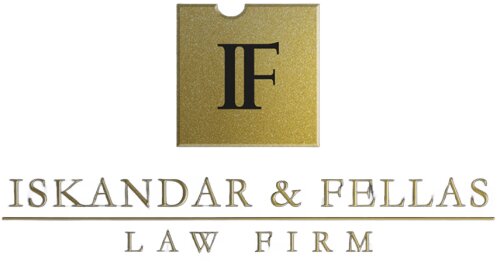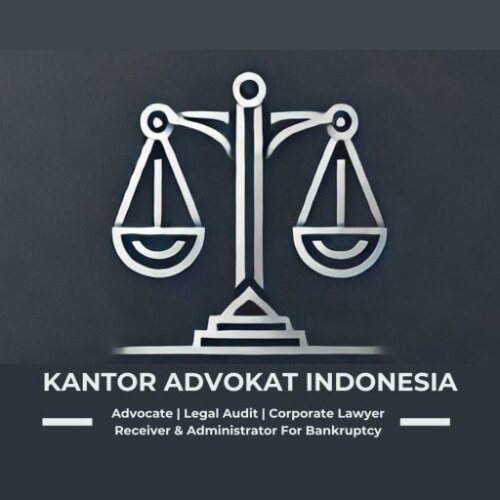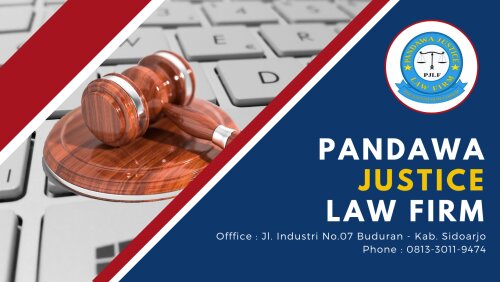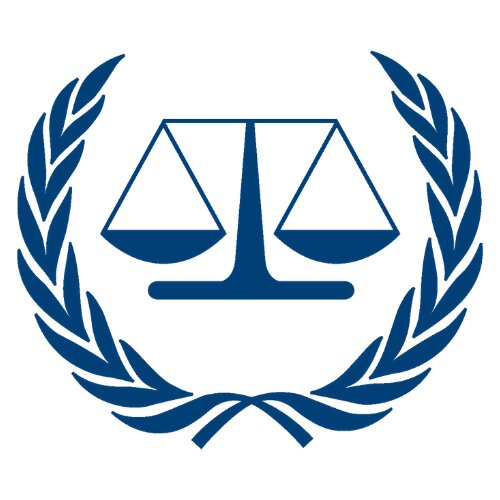Best Civil & Human Rights Lawyers in Indonesia
Share your needs with us, get contacted by law firms.
Free. Takes 2 min.
Or refine your search by selecting a city:
List of the best lawyers in Indonesia
About Civil & Human Rights Law in Indonesia
Civil and Human Rights in Indonesia are fundamental aspects safeguarding the dignity, freedom, and protection of individuals within the country. The Indonesian Constitution and various laws are designed to protect civil rights, including the right to equality, freedom from discrimination, and access to education, employment, and healthcare. The National Commission on Human Rights (Komnas HAM) actively plays a pivotal role in promoting and protecting these rights, ensuring the Indonesian government upholds international human rights standards and treaties.
Why You May Need a Lawyer
There are several scenarios where you might need legal assistance in the field of Civil & Human Rights in Indonesia. These include instances of discrimination based on race, gender, religion, or disability, labor rights violations, land disputes, or inadequate access to healthcare and education. Legal help may also be necessary if you face issues concerning freedom of speech, association, or unlawful detainment. A competent lawyer can provide guidance, ensure your rights are respected, and represent you in legal proceedings.
Local Laws Overview
Indonesia's legal system comprises Civil Law and customary laws (Adat), influenced by colonial history and international human rights norms. Key laws relevant to Civil & Human Rights include the Indonesian Human Rights Law (Law No. 39 of 1999), the Child Protection Law, and the Law on the Elimination of Domestic Violence. Additionally, as a signatory to various international human rights conventions like the Convention on the Elimination of All Forms of Discrimination Against Women (CEDAW) and the International Covenant on Civil and Political Rights (ICCPR), Indonesia is committed to these global standards.
Frequently Asked Questions
What constitutes a human rights violation in Indonesia?
Any act that discriminates, tortures, undermines the dignity, or unjustly deprives a person of their freedom or rights can be considered a human rights violation.
How does Indonesia handle cases of discrimination?
The Indonesian Constitution and national laws prohibit discrimination, and victims can seek redress through the courts or Komnas HAM, which investigates and mediates in reported cases.
What are my rights if I am unlawfully detained?
You have the right to be informed of the charges against you, to legal representation, and to be brought before a court promptly. Legal aid can be sought to ensure these rights are upheld.
Is freedom of speech protected in Indonesia?
While freedom of speech is protected under Indonesian law, it is subject to limitations to protect national security, public order, and morality.
Can I challenge government actions that infringe on my rights?
Yes, individuals can legally challenge actions they believe violate their rights through administrative courts or by filing complaints with Komnas HAM.
What legal support exists for victims of domestic violence?
Victims can file reports with the police, and laws like the Law on the Elimination of Domestic Violence provide specific protections and outline available legal recourse.
Is there legal recourse against unfair labor practices?
Indonesia's labor laws protect workers from exploitation, and disputes can be addressed through the Ministry of Manpower or labor courts.
Are there special protections for children in Indonesia?
Yes, the Child Protection Law ensures children's rights to education, health, and protection from exploitation and abuse.
How does the legal system protect indigenous rights?
Indonesia recognizes customary land rights and cultural practices, and indigenous groups can seek legal protection against rights infringements.
What resources are available for those facing human rights abuses?
Victims can contact organizations like Komnas HAM or local NGOs dedicated to human rights protection for assistance and guidance.
Additional Resources
Individuals seeking additional support can contact the National Commission on Human Rights (Komnas HAM), the Legal Aid Institute, or local civil society organizations. These entities provide legal assistance, advocacy, and information on civil and human rights issues.
Next Steps
If you need legal assistance in Civil & Human Rights, consider consulting with a qualified lawyer experienced in this field. Reach out to legal aid organizations if resources are limited. Preparation of documentation and a clear account of the violation or issue will aid in seeking appropriate legal recourse. Engaging with community support groups and human rights organizations can also provide essential backing and guidance in navigating your legal challenges.
Lawzana helps you find the best lawyers and law firms in Indonesia through a curated and pre-screened list of qualified legal professionals. Our platform offers rankings and detailed profiles of attorneys and law firms, allowing you to compare based on practice areas, including Civil & Human Rights, experience, and client feedback.
Each profile includes a description of the firm's areas of practice, client reviews, team members and partners, year of establishment, spoken languages, office locations, contact information, social media presence, and any published articles or resources. Most firms on our platform speak English and are experienced in both local and international legal matters.
Get a quote from top-rated law firms in Indonesia — quickly, securely, and without unnecessary hassle.
Disclaimer:
The information provided on this page is for general informational purposes only and does not constitute legal advice. While we strive to ensure the accuracy and relevance of the content, legal information may change over time, and interpretations of the law can vary. You should always consult with a qualified legal professional for advice specific to your situation.
We disclaim all liability for actions taken or not taken based on the content of this page. If you believe any information is incorrect or outdated, please contact us, and we will review and update it where appropriate.
Browse civil & human rights law firms by service in Indonesia
Indonesia Attorneys in related practice areas.
Browse civil & human rights law firms by city in Indonesia
Refine your search by selecting a city.

















